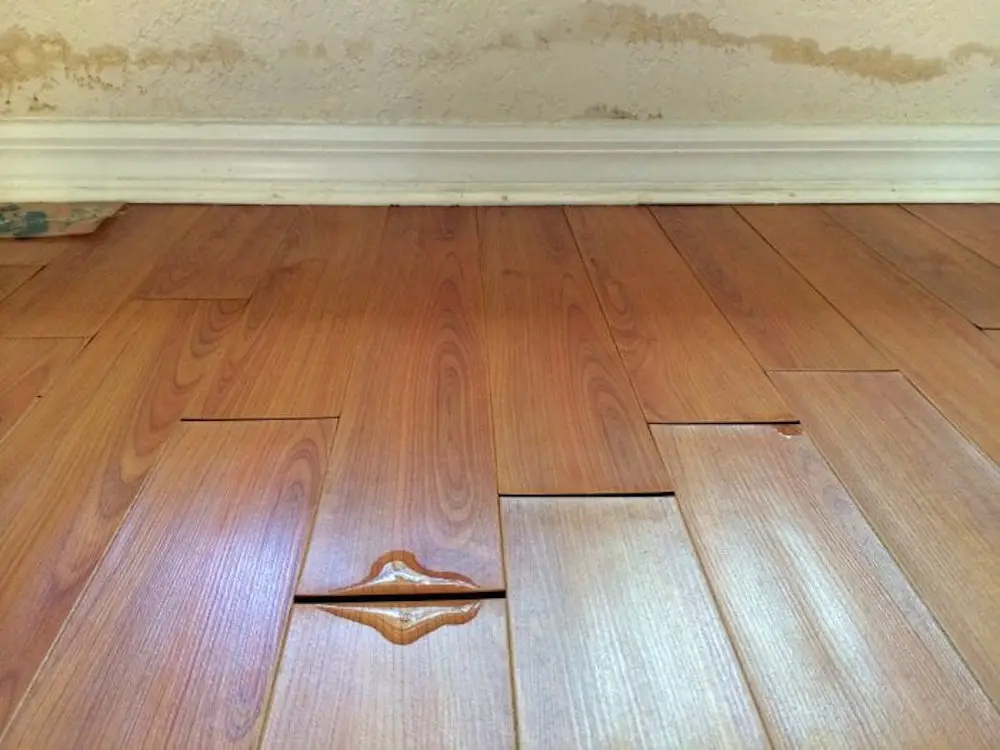
Water damage in the home can be a source of enormous stress and cause you to have to deal with frustrating repairs, property loss, and inconvenient interruptions to water usage in your home. Dealing with these issues can add to your stress when you have water damage, so it’s important that you know how and when your homeowners insurance will cover water damage.
Understanding How Home Insurance Covers Water Damage
Water damage is a catch-all term that can refer to damage that results from a wide range of specific causes that can impact the structure of your home and the property inside. The coverage included in standard homeowners insurance policies does not apply in cases involving flooding or poor maintenance of the home.

In these two scenarios, respectively, you would need to have:
- A separate flood insurance policy or
- To pay to repair the damage out of pocket, as no matter what additional policies you may have, home insurance generally doesn’t cover damage that results from negligence or poor maintenance of the home.
That being the case, you need to have in place proper home maintenance practices to quickly address any signs of water damage. As a homeowner, you have many areas of the home to maintain properly when attempting to minimize future water damage, and it can feel overwhelming knowing how to keep track of it all.
In order to care of your home and avoid water damage, you need to pay attention to the main systems and appliances in your home that rely on its water supply, including the:
- Plumbing supply system
- Drain system
- Toilets
- Showers
- Sinks
- Sewer system
- Water heaters
- Washing machine
- Dishwasher
Monitoring Water Supply Access Points in Your Home
Water damage is frequently listed reason for insurance claims, and one out of every fifty insured homes in the United States makes a water damage-related insurance claim every year. Making sure that you’re on top of the maintenance in your home can go a long way toward ensuring that you aren’t dealing with expensive repairs that won’t be covered under your insurance.
You can monitor all the systems, appliances, and fixtures in your home that use water by checking for any leaks or dripping water after rainstorms and ensuring that accessible parts of your plumbing are checked as well. If you live in an older home, have a professional inspect your plumbing and drain systems every five years to keep your home in good condition.
Additionally, you can keep an eye on whether any accessible household fixtures, such as the garbage disposal, washing machines, water heaters, refrigerators, and dishwashers don’t have leaking connections to the water supply, are functioning properly, and don’t have deteriorated over long-term use.
Be sure to know how each of these fixtures and appliances is performing. If there’s an issue, make sure to repair or replace these items as needed. When running your washing machine and dishwasher, always have someone at your home until the cycle is over to stop the machine in the event that there is an overflow or leaking of water.
Watching Out for Moisture-Related Mold
Beyond the systems in your home that use the water supply, another source of water damage is your home’s HVAC, the heating, ventilating, and air conditioning unit. As the HVAC control temperature changes in your home, moisture can accumulate in the air conditioning ducts in your home.
This provides a fertile breeding ground for mold, and as preventing its accumulation would be considered part of normal home maintenance, it’s unlikely that your home insurance would cover mold removal under your policy’s water damage coverage.
Another concern is areas that aren’t frequented often, such as attics, basements, and crawl spaces. These areas, which can only naturally be darker and damper than the rest of the home, can also cause extensive home repair costs if left unchecked.
As moisture accumulates in these spaces, mold can grow, which can cause structural damage to your home. In the basement, moisture can come from water leaking through the foundation of your home, while in the attic, outside air seeping in can result in moisture building up on the inside of the roof as the air acclimates to the home’s interior temperature.
Crawl spaces can be particularly vulnerable to unseen water damage, as the dark space is where builders will provide access to plumbing systems in the home. If there are any leaks in these pipes, moisture buildup in this space provides the perfect conditions for mold to grow in your home, so it’s important that you monitor these areas regularly to address any issues in a timely manner.
Conclusion
You can prevent water damage that isn’t covered under your home insurance policy by having regular time to check these areas of your home. In the event that there is moisture build-up, you can take care of the issue right away rather than having that problem grow with you unaware of it, which would leave you with a massive bill later.
In the event that there is sudden and accidental water damage to your home, you may be able to make a claim. Make sure to look into additional policies you might need if you live in an area that is prone to water damage from natural disasters like floods and hurricanes, as you’ll need a separate policy to cover damage from such events.

